Thyroid gland is located in the middle of the neck and surrounds the trachea like a shield. It produces two hormones: thyroid hormone and calcitonin. The thyroid gland uses iodine to produce thyroid hormones that regulate body metabolism. Thyroid agents either replace or remove hormones to prevent deficiency and excess. Thyroid agents include thyroid hormones (T3, T4, TSH)and antithyroid drugs (further classified as thioamides and iodine solution).
Thyroid Agents: Generic and Brand Names
Here is a table of commonly encountered thyroid agents, their generic names, and brand names:
- Thyroid agents
- Thyroid hormones
- levothyroxine (Synthroid, Levoxyl)
- liothyronine (Cytomel, Triostat)
- liotrix (Thyrolar)
- thyroid desiccated extract (Armour Thyroid)
- Thyroid hormones
- Antithyroid agents
Disease Spotlight: Thyroid Dysfunction
- Thyroid dysfunction involves either under activity (hypothyroidism) or overactivity (hyperthyroidism). This can affect any age group.
- Hypothyroidism is a lack of sufficient levels of thyroid hormones to maintain a normal metabolism. This is the most common type of thyroid dysfunction and is common among older women and men. Symptoms include obesity and fatigue, among others. Severe adult hypothyroidism is called
- Cretinism is a condition in children who are born without a thyroid gland or who have a nonfunctioning gland. This can lead to poor growth and development as well as mental retardation.
- Hyperthyroidism occurs when excessive amounts of thyroid hormones are produced and released into circulation. Graves’ disease is the most common cause of hyperthyroidism.
Thyroid Hormones
- Thyroid hormones are made available to replace the low or absent levels of natural thyroid hormone and suppress the overproduction of TSH by the pituitary.
- These can contain both natural and synthetic thyroid hormone.
Therapeutic Action
The desired and beneficial action of thyroid hormones:
- This is replacement hormone for hypothyroid states like myxedema coma, goiters, and thyroid cancer increases the metabolic rate of body tissues, increasing oxygen consumption, respiration, heart rate, growth and maturation, and the metabolism of fats, carbohydrates, and proteins.
- Levothyroxine, a synthetic salt of T4, is the most frequently used replacement hormone because of its predictable bioavailability and reliability.
Indications
Thyroid hormones are indicated for the following medical conditions:
- Replacement hormone for hypothyroid states like myxedema coma, goiters, and thyroid cancer
- Treatment for thyroid toxicity in conjunction with antithyroid drugs
- Treatment for thyroid overstimulation during pregnancy
Pharmacokinetics
Here are the characteristic interactions of thyroid hormones and the body in terms of absorption, distribution, metabolism, and excretion:
| Route | Onset | Peak | Duration |
|---|---|---|---|
| PO | Slow | 1-3 wk | 1-3 wk |
| IV | 6-8 h | 24-48 h | Unknown |
Contraindications and Cautions
The following are contraindications and cautions for the use of thyroid hormones:
- Allergy to any component of the drug. To prevent hypersensitivity reactions.
- Acute thyrotoxicosis (unless used in conjunction with antithyroid drugs). Can be exacerbated by the drugs
- Myocardial infarction. Can be exacerbated by the drugs
- Lactation. Drug enters breast milk and can suppress infant’s thyroid production
- Addison disease. Body will not be able to deal with drug effects.
- Pregnancy. Potential adverse effects on the fetus
- Liothyronine and liorix have greater incidence of cardiac side effects.
Adverse Effects
Use of thyroid and hormones may result to these adverse effects:
- Skin reactions and loss of hair
- Symptoms of hyperthyroidism
Interactions
The following are drug-drug interactions involved in the use of thyroid hormones:
- Cholestyramine. Decreased absorption of thyroid hormones (take two hours apart)
- Anticoagulants. Increased bleeding
- Digitalis glycosides. Decreased effectiveness of digitalis glycosides.
Nursing Considerations
Here are important nursing considerations when administering thyroid hormones:
Nursing Assessment
These are the important things the nurse should include in conducting assessment, history taking, and examination:
- Assess for contraindications or cautions (e.g. history of allergy, pregnancy, Addison disease, etc.) to avoid adverse effects.
- Assess skin lesions; orientation and affect; blood pressure, pulse, peripheral perfusion, and vessel evaluation; respiration and adventitious breath sounds; thyroid function test to determine baseline status before beginning therapy and for any potential adverse effects.
Nursing Diagnoses
Here are some of the nursing diagnoses that can be formulated in the use of this drug for therapy:
- Decreased cardiac output related to CV effects
- Imbalanced nutrition: less than body requirements related to changes in metabolism
- Ineffective tissue perfusion related to thyroid activity
Implementation with Rationale
These are vital nursing interventions done in patients who are taking thyroid hormones:
- Administer a single daily dose before breakfast each day to ensure consistent therapeutic levels.
- Administer with a full glass of water to prevent difficulty of swallowing and esophageal atresia.
- Monitor cardiac response to detect cardiac adverse effects.
- Arrange for periodic blood tests of thyroid function to monitor the effectiveness of the therapy.
- Provide comfort measures (temperature control, rest as needed, safety precautions) to help patient cope with drug effects.
- Provide patient education about drug effects and warning signs to report to enhance patient knowledge and to promote compliance.
Evaluation
Here are aspects of care that should be evaluated to determine effectiveness of drug therapy:
- Monitor patient response to therapy (return of metabolism to normal, prevention of goiter).
- Monitor for adverse effects (tachycardia, hypertension, anxiety, skin rash).
- Evaluate patient understanding on drug therapy by asking patient to name the drug, its indication, and adverse effects to watch for.
- Monitor patient compliance to drug therapy.
Antithyroid Agents
- Antithyroid agents are drugs used to block the production of thyroid hormone and treat hyperthyroidism.
- This include thioamides and iodide solutions. These groups of drugs are not chemically related but they both block the formation of thyroid hormones within the thyroid gland.
Therapeutic Action
The desired and beneficial action of antithyroid agents:
- Thioamides lower thyroid hormones by preventing the formation of thyroid hormone in the thyroid cells. They also partially inhibit the conversion of T4 to T3 at cellular level. Thioamides include propylthiouracil (PTU) and methimazole.
- Iodine solutions in high doses block thyroid function. They cause the cells to become oversaturated with iodine and stop producing hormones.
Indications
Antithyroid agents are indicated for the following medical conditions:
- Treatment of hyperthyroidism
- Thyroid blocking in a radiation emergency
Pharmacokinetics
Here are the characteristic interactions of thioamides and the body in terms of absorption, distribution, metabolism, and excretion:
- Route: PO
- Onset: 30-60 min
- Peak: Not specified
- Duration: 2-4 h
- Half-life (T1/2): 6-13 h
- Metabolism: Not specified
Here are the characteristic interactions of iodine solutions and the body in terms of absorption, distribution, metabolism, and excretion:
- Route: PO
- Onset: 24 h
- Peak: 10-15 days
- Duration: 6 weeks
- Half-life (T1/2): Unknown
- Metabolism: Liver
- Excretion: Urine
Contraindications and Cautions
The following are contraindications and cautions for the use of antithyroid agents:
- Allergy to any component of the drug. To prevent hypersensitivity reactions.
- Pregnancy. Development of cretinism. PTU is the drug of choice for pregnant women.
- Lactation. Risk of antithyroid activity in the infant (neonatal goiter)
- Pulmonary edema or tuberculosis. Contraindicated with strong iodine products.
Adverse Effects
Use of antithyroid agents may result to these adverse effects:
- Thioamides: drowsiness, lethargy, bradycardia, nausea, skin rash
- PTU: nausea, vomiting, GI complaints, severe liver toxicity
- Methimazole: bone marrow suppression
- Iodine solution: hypothyroidism; metallic taste and burning sensation in the mouth, sore teeth and gums, diarrhea; staining of teeth, skin rash, and development of goiter. I131 is only for patients over 30 years old because of adverse effects associated with radioactivity.
Interactions
The following are drug-drug interactions involved in the use of antithyroid agents:
- Thioamides: increased bleeding with oral anticoagulants and PTU
- Iodine solutions: changes in the metabolism and level of anticoagulants, theophylline, digoxin, metoprolol, and propranolol
Nursing Considerations
Here are important nursing considerations when administering antithyroid agents:
Nursing Assessment
These are the important things the nurse should include in conducting assessment, history taking, and examination:
- Assess for contraindications or cautions (e.g. history of allergy, renal stone, pregnancy, etc.) to avoid adverse effects.
- Assess skin lesions; orientation and affect; liver evaluation; serum calcium, magnesium, and alkaline phosphate levels; and radiographs of bones as appropriate, to determine baseline status before beginning therapy and for any potential adverse effects.
Nursing Diagnoses
Here are some of the nursing diagnoses that can be formulated in the use of this drug for therapy:
- Imbalanced nutrition: more than body requirements related to metabolic changes
- Risk for injury related to bone marrow suppression
Implementation with Rationale
These are vital nursing interventions done in patients who are taking antithyroid agents:
- Administer PTU three times a day, around the clock to ensure consistent therapeutic levels.
- Give iodine solution through a straw to decrease staining of teeth; tables can be crushed.
- Provide comfort measures to help patient cope with drug effects.
- Provide patient education about drug effects and warning signs to report to enhance patient knowledge and to promote compliance.
Evaluation
Here are aspects of care that should be evaluated to determine effectiveness of drug therapy:
- Monitor patient response to therapy (lowering of thyroid hormone levels).
- Monitor for adverse effects (bradycardia, anxiety, blood dyscrasias).
- Evaluate patient understanding on drug therapy by asking patient to name the drug, its indication, and adverse effects to watch for.
- Monitor patient compliance to drug therapy.
Recommended Resources
Our recommended nursing pharmacology resources and books:
Disclosure: Included below are affiliate links from Amazon at no additional cost from you. We may earn a small commission from your purchase which will help support us. Thank you! For more information, check out our privacy policy.
Pharm Phlash! Pharmacology Flash Cards #1 BEST SELLER!
Test-yourself review cards put critical clinical information for nearly 400 of the top generic medications at your fingertips. And, you can count on them for accuracy, because each card is based on content from Davis’s Drug Guide for Nurses. Increase your test scores in pharmacology class.
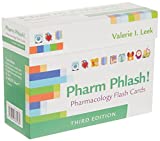
Focus on Pharmacology (8th Edition)
Focus on Nursing Pharmacology makes challenging concepts more approachable. Engaging learning features cultivate your clinical application, critical thinking and patient education capabilities. This updated 8th edition builds on your knowledge of physiology, chemistry and nursing fundamentals to help you conceptualize need-to-know information about each group of drugs.
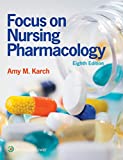
Pharmacology Made Incredibly Easy (Incredibly Easy! Series®)
Nursing pharmacology guide offers step-by-step guidance so you can grasp the fundamentals in enjoyable Incredibly Easy style. This is the perfect supplement to class materials, offering solid preparation for NCLEX® as well as a handy refresher for experienced nurses. Colorfully illustrated chapters offer clear, concise descriptions of crucial nursing pharmacology concepts and procedures.
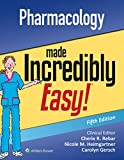
Lehne’s Pharmacology for Nursing Care (11th Edition)
The Eleventh Edition of Lehne’s Pharmacology for Nursing Care provides a thorough understanding of key drugs and their implications for nursing care. This text, written by renowned nursing educators, helps you comprehend and apply pharmacology principles. A clear and engaging writing style simplifies complex concepts, making even the most challenging pharmacology content enjoyable. We recommend this book if you want a comprehensive nursing pharmacology guide.
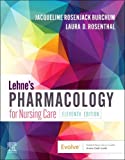
Nursing Drug Handbook
Nursing2023 Drug Handbook delivers evidence-based, nursing-focused drug monographs for nearly 3700 generic, brand-name, and combination drugs. With a tabbed, alphabetical organization and a “New Drugs” section, NDH2023 makes it easy to check drug facts on the spot.
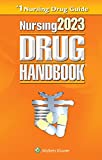
Pharmacology and the Nursing Process
The 10th edition of Pharmacology and the Nursing Process offers practical, user-friendly pharmacology information. The photo atlas contains over 100 unique illustrations and photographs depicting drug administration techniques. Updated drug content reflects the most recent FDA drug approvals, withdrawals, and therapeutic uses.
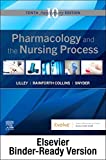
Mosby’s Pharmacology Memory NoteCards: Visual, Mnemonic, and Memory Aids for Nurses
The 6th edition of Mosby’s Pharmacology Memory NoteCards: Visual, Mnemonic, & Memory Aids for Nurses incorporates illustrations and humor to make studying easier and more enjoyable. This unique pharmacology review can be utilized as a spiral-bound notebook or as individual flashcards, making it ideal for mobile study.
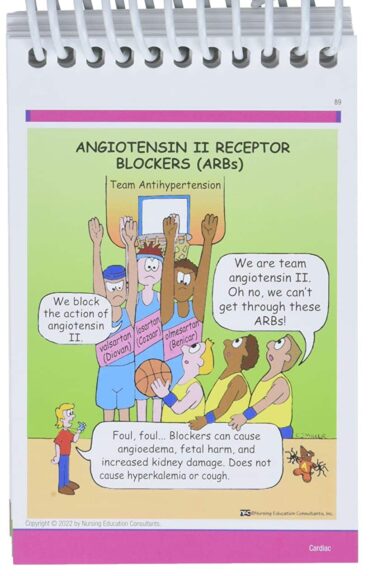
See Also
Here are other nursing pharmacology study guides:
- Nursing Pharmacology – Study Guide for Nurses
Our collection of topics related to nursing pharmacology - Pharmacology Nursing Mnemonics & Tips
These nursing mnemonics aim to simplify the concepts of pharmacology through the use of a simple, concise guide. - Generic Drug Name Stems Cheat Sheet
Learn about these generic drug name stems to help you make sense of drugs easier! - Common Drugs and Their Antidotes
A guide to drug antidotes that nurses should be familiar about. - IV Fluids and Solutions Guide & Cheat Sheet
Get to know the different types of intravenous solutions or IV fluids in this guide and cheat sheet. - Drug Dosage Calculations NCLEX Practice Questions (100+ Items)
Care to take the challenge? This quiz aims to help students and registered nurses alike grasp and master the concepts of medication calculation.
We have a pill for that…
Drug Guides NEW!
Individual drug guides and nursing considerations for the most common medications used in nursing pharmacology:
- Acetaminophen (Tylenol)
- Aspirin
- Atorvastatin (Lipitor)
- Enoxaparin (Lovenox)
- Furosemide (Lasix)
- Gabapentin
- Hydromorphone (Dilaudid)
- Lisinopril
- Metoprolol
- Morphine
Gastrointestinal System Drugs
Respiratory System Drugs
- Antihistamines
- Bronchodilators and Antiasthmatics
- Decongestants
- Expectorants and Mucolytics
- Inhaled Steroids
- Lung Surfactants
Endocrine System Drugs
- Adrenocortical Agents
- Antidiabetic Agents
- Glucose-Elevating Agents
- Hypothalamic Agents
- Insulin
- Parathyroid Agents: Bisphosphonates, Calcitonins
- Pituitary Drugs
- Sulfonylureas
- Thyroid Agents
Autonomic Nervous System Drugs
- Adrenergic Agonists (Sympathomimetics)
- Adrenergic Antagonists (Sympatholytics)
- Anticholinergics (Parasympatholytics)
- Cholinergic Agonists (Parasympathomimetics)
Immune System Drugs
Chemotherapeutic Agents
- Anthelmintics
- Anti-Infective Drugs
- Antibiotics
- Antifungals
- Antineoplastic Agents
- Antiprotozoal Drugs
- Antiviral Drugs
Reproductive System Drugs
Nervous System Drugs
- Antidepressants
- Antiparkinsonism Drugs
- Antiseizure Drugs
- Anxiolytics and Hypnotic Drugs
- General and Local Anesthetics
- Muscle Relaxants
- Narcotics, Narcotic Agonists, and Antimigraine Agents
- Neuromuscular Junction Blocking Agents
- Psychotherapeutic Drugs
Cardiovascular System Drugs
References and Sources
References and sources for this pharmacology guide for Thyroid agents:
- Karch, A. M., & Karch. (2011). Focus on nursing pharmacology. Wolters Kluwer Health/Lippincott Williams & Wilkins. [Link]
- Katzung, B. G. (2017). Basic and clinical pharmacology. McGraw-Hill Education.
- Lehne, R. A., Moore, L. A., Crosby, L. J., & Hamilton, D. B. (2004). Pharmacology for nursing care.
- Smeltzer, S. C., & Bare, B. G. (1992). Brunner & Suddarth’s textbook of medical-surgical nursing. Philadelphia: JB Lippincott.

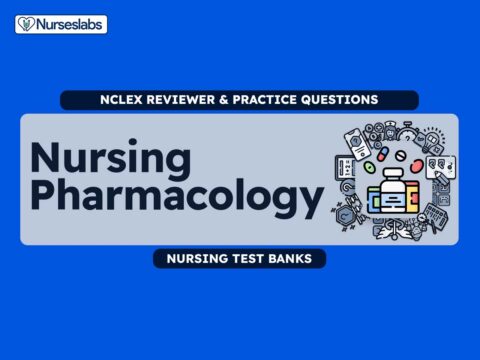
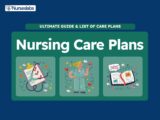
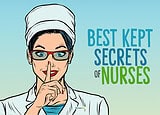
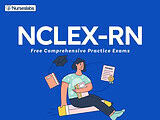


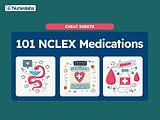
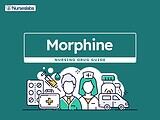
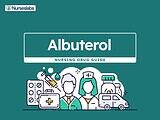
![Furosemide Nursing Considerations and Patient Teaching [Drug Guide]](https://nurseslabs.com/wp-content/uploads/2023/07/Furosemide-160x120.jpg)

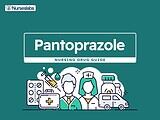
![Lisinopril Nursing Considerations and Patient Teaching [Drug Guide]](https://nurseslabs.com/wp-content/uploads/2023/03/Lisinopril-160x120.jpg)


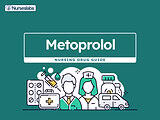
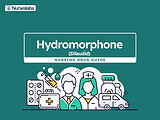
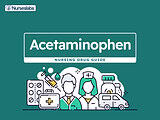
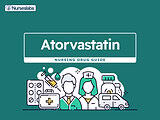
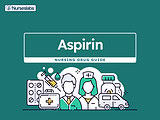
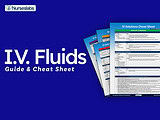
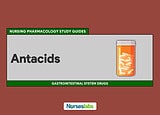
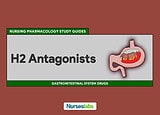
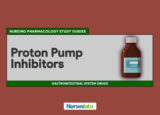

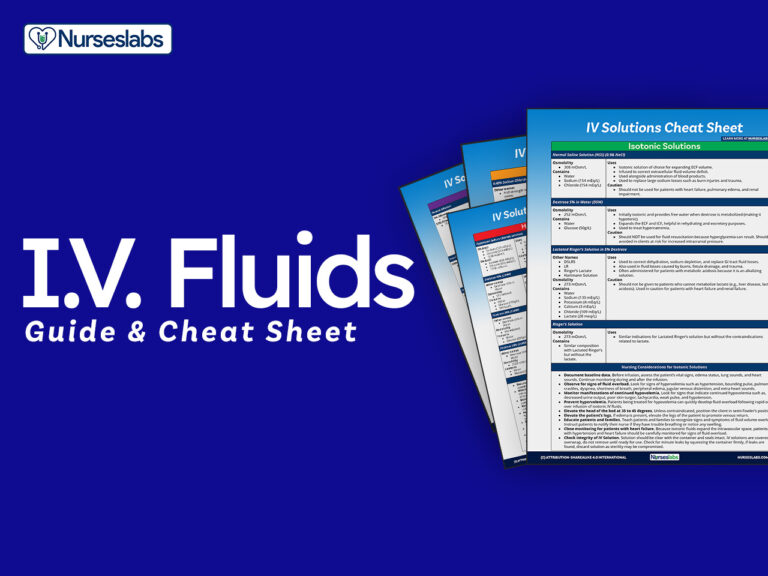
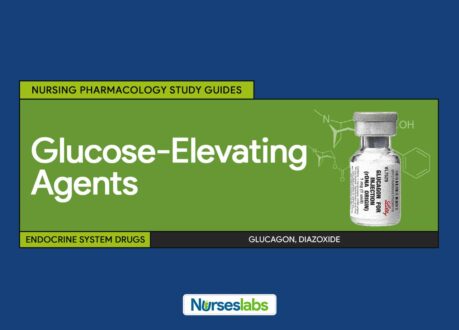
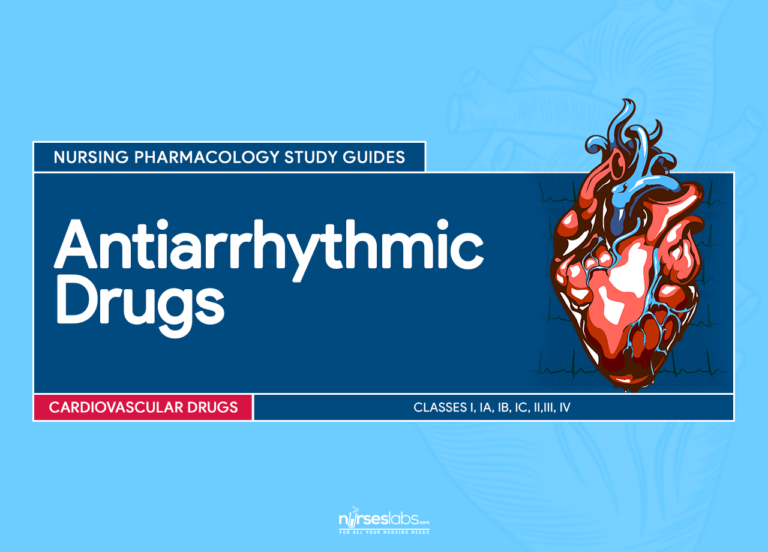
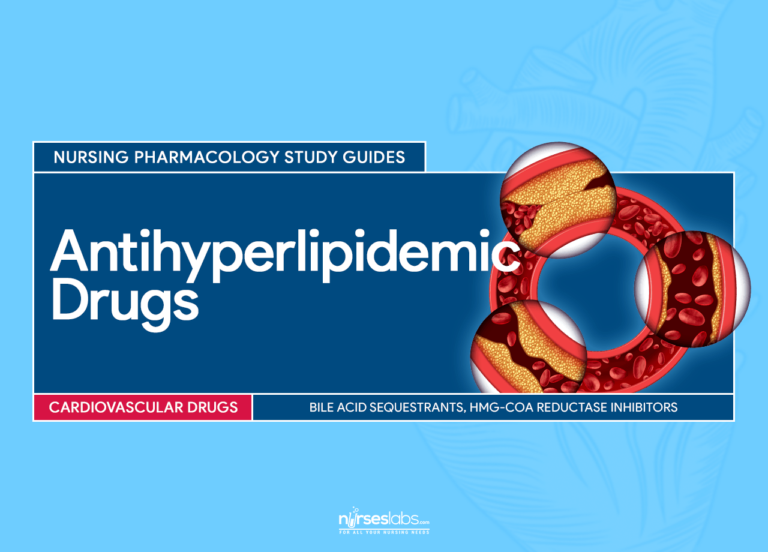
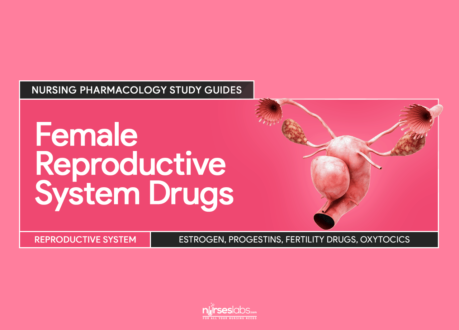
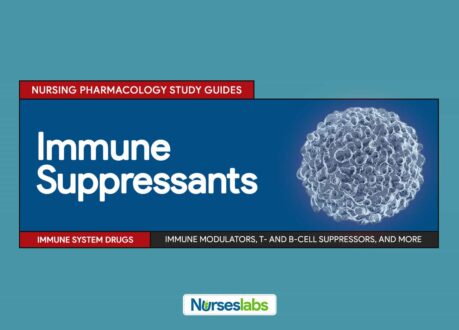
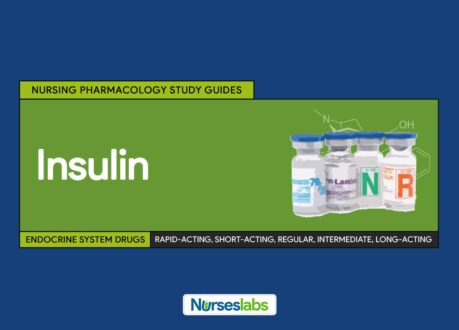
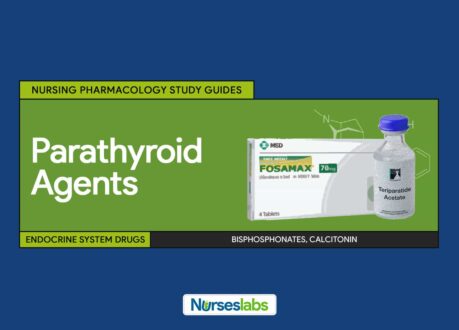

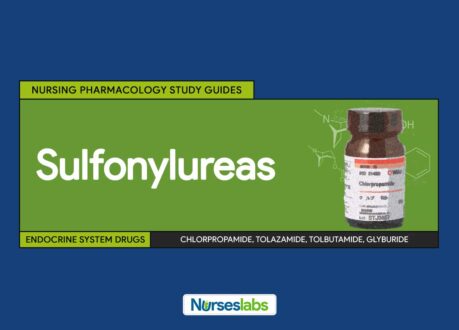

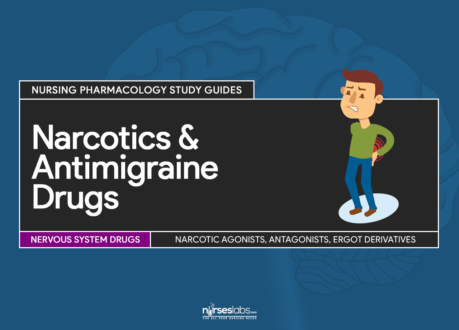
Leave a Comment